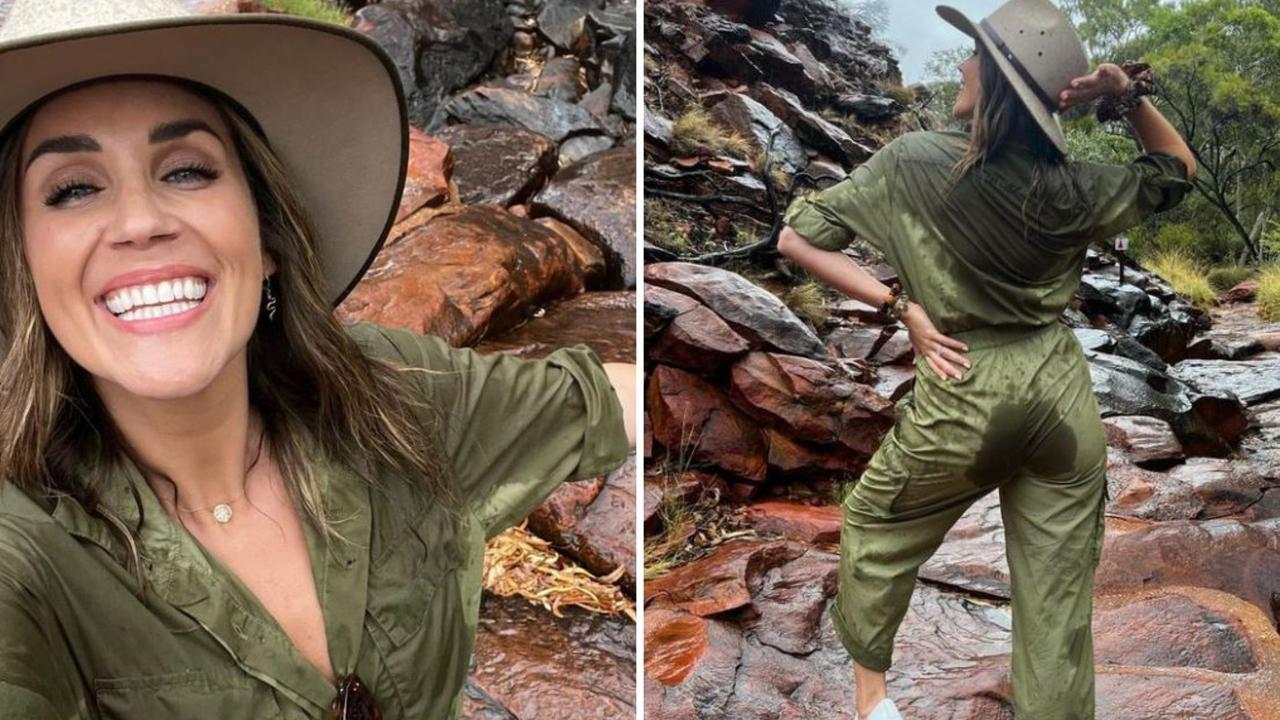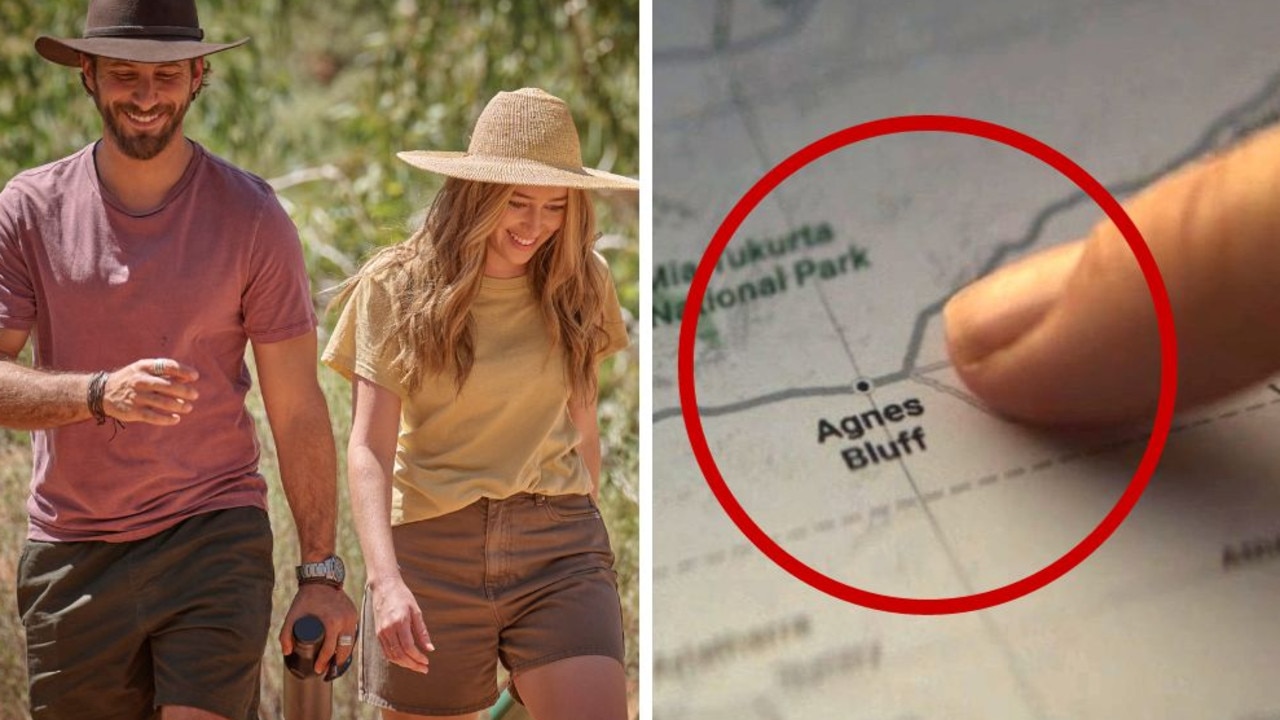One Nation’s Pauline Hanson compares closing Uluru to shutting Bondi Beach
The Today show has been lashed for debating Uluru — and the panel had a conspicuous problem that soon became apparent.
In almost three months, the climb up Uluru will be closed for good — but the decision to shut the hour-long hike is stirring debate.
One Nation’s Pauline Hanson and radio host Steve Price appeared on Today this morning to argue why the sacred rock should stay open to climbers.
But the breakfast show’s choice of having Price and Ms Hanson, both caucasian Australians, debate the topic alongside Today host Deb Knight, also a caucasian Australian, has been lashed on social media.
Taking to Twitter, dozens of Australians described the debate as “racist” and “unbalanced”.
Australia, you are exhausting. https://t.co/Y5yLXV8xLK
— Benjamin Law (@mrbenjaminlaw) July 14, 2019
Let’s talk Uluru climbing with … Pauline Hanson and Steve Price. Couldn’t they find anyone whiter? https://t.co/9br4H2qbaQ
— Jonathan Green (@GreenJ) July 15, 2019
Never watch either @TheTodayShow or @sunriseon7 because of the lack of any sort or reasoned or balanced discussion, plus they are just boring. No prizes for guessing what Pauline Hanson or Steve Price thought on the issue. So predictable.
— Malcolm Astle (@Callum_bec) July 15, 2019
If by exhausting you mean hella racist, then yeah.
— JeremyBearimy (@karlamac24) July 15, 2019
Hello media,
— Now What 🤷ðŸ¼â€â™€ï¸ (@toninicho) July 15, 2019
Please stop asking Pauline Hanson for her opinions on things she knows nothing about.
Thanks
Australians. Quiet or otherwise.
Yawuru woman Shannan Dodson, who works as an Indigenous Affairs Adviser for Media Diversity Australia and is on the committee for NAIDOC week, said Uluru should have the same significance as any other of the world’s sacred sites.
“The issue around climbing Uluru is that it is a sacred place and at the end of the day, when you see how much the world rallied around the destruction of Notre Dame and how significant that is, people understand there are sacred places based around culture and religion,” she said.
“The fact you can’t then translate that to Uluru having the same significance is undermining.
“For me, it feels like Western cultures and values are always elevated above other cultures and values. It’s saying Aboriginal cultures and values are less important. It’s just a thinking that we’re less than them and that our culture and values don’t matter.”
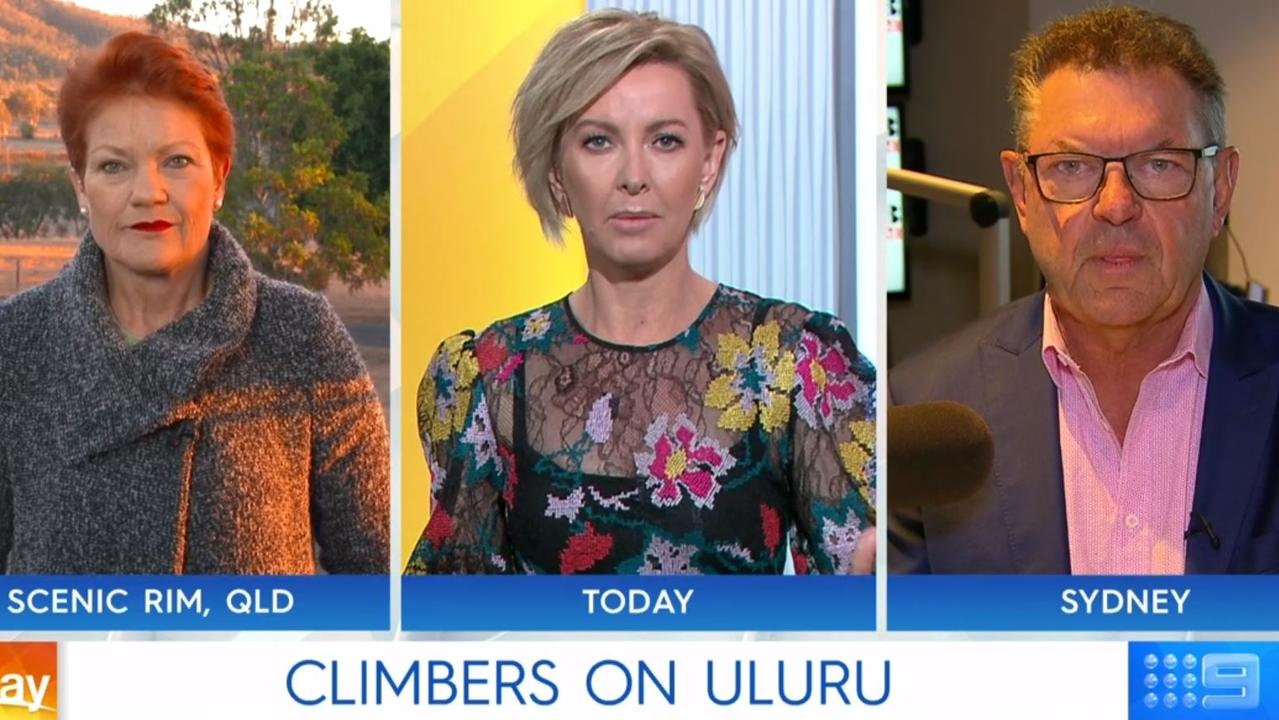
Ms Dodson said not including another viewpoint on the Today panel was “problematic”.
“Obviously the show has two people with the same opinion about climbing Uluru,” she said.
“It would’ve been better to have a traditional owner or someone with a connection to Uluru to explain the significance and explain why the conversation was happening and why it needs to be closed down.
“It’s not like we don’t understand what a sacred place is. Obviously not including another viewpoint is problematic.”
Today reporter Brooke Boney, a Gamilaroi Gomeroi woman, was later asked her opinion on the Uluru closure after the original segment had aired.
“This isn’t indigenous people having some sort of say over what happened on their lands, their sacred sites,” Boney said at the end of the breakfast program.
“The thing about (Uluru) is it is so sacred to them every time someone gets injured or hurt or has to be airlifted out ... it hurts them and they say that the ancestors mourn the loss of those people. They are not doing it to be nasty or protective of themselves, they are doing it to protect others.”
Ms Hanson criticised the upcoming closure on Today and said it was “no different to coming out and saying, ‘We’re going to close down Bondi Beach because there are some people that have drowned’. How ridiculous is that?”
The One Nation leader said nothing needed to change because “we’ve been climbing the Ayers Rock, or Uluru, for many years”.
“The Australian taxpayers put in millions, hundreds of millions of dollars into it and they’re wanting another $27.5 million to upgrade the airport there for the resort,” she said.
“Now the resort has only returned $19 million to the taxpayers only just recently. It employs over 400 people there, 38 per cent are Aboriginal and Torres Strait Islanders.
“The fact is, it’s money-making. It’s giving jobs to indigenous communities, and you’ve got thousands of tourists who go there every year and want to climb the rock.”
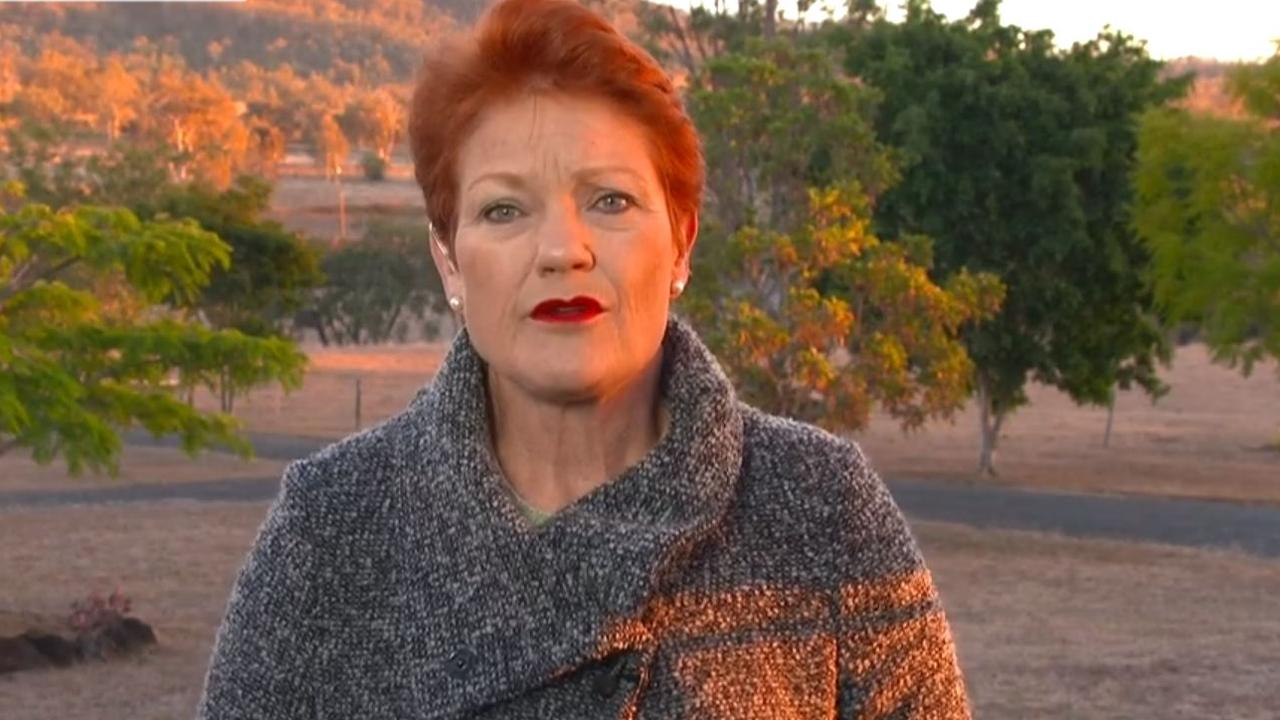
In November 2017, the Uluru-Kata Tjuta National Park Board started the countdown of when the climb would be closed permanently.
The date of October 26, 2019 was put forward — a significant day for the Anangu indigenous community because it was that day in 1985 that the government returned ownership of the land to the traditional owners.
RELATED: Uluru October closure creates new headache
But since setting the date, the number of people climbing Uluru has skyrocketed.
Before park management announced it was closing the climb, around 140 people were climbing Uluru each day.
Since then, the number has doubled and at times tripled to 300-500 daily visitors.
Ms Hanson said she was struggling to understand the “cultural sensitivity” around Uluru.
“It is an iconic site for all Australians,” she said.
“I can’t see the cultural sensitivity when people have been climbing the rock for all these years, and all of a sudden they want to shut it down? I don’t get it, I really don’t get it, and how are they going to pay back the Australian taxpayer?”
“It’s no different to saying we’re going to close down Bondi Beach because there are some people there that have drowned. How ridiculous is that!†@PaulineHansonOz #9Today pic.twitter.com/aQ2nPTtdgL
— The Today Show (@TheTodayShow) July 14, 2019
Radio host Steve Price said climbing Uluru could be managed and seen as a positive.
“We go on the outside of the Harbour Bridge, we dive the Barrier Reef,” he said.
“What we should be doing is assisting the local indigenous population to make this a growing tourism concern. We’ve seen, apparently, a huge spike in people that want to climb it since the announcement it’s going to close in October. So that shows there’s a hunger for tourists to do it.
“If it’s well managed Deb (Today co-host Deb Knight) I don’t have an issue with it. We need to sit down with them and explain this could be a positive for them.”
RELATED: Anger as tourists swarm Uluru as climb closure date approaches
In the 12 months to June 2019, more than 395,000 people visited the Uluru-Kata National Park, according to Parks Australia, about 20 per cent more than the previous year.
Yet just 13 per cent of those who visited also climbed the rock, the government agency said.
Tourism operators say that Australian and Japanese tourists most commonly seek to climb Uluru.
The Aboriginal connection to the site dates back tens of thousands of years, and it has great spiritual and cultural significance to them.
“Since the hand back of Uluru and Kata Tjuta to traditional owners in 1985, visitors have been encouraged to develop an understanding and respect for Anangu and their culture,” a Parks Australia spokesman said.
“This is reflected in the ‘please don’t climb’ message.”
Last week, a photo taken at the base of Uluru went viral after it showed hordes of tourists snaking up the rock face.
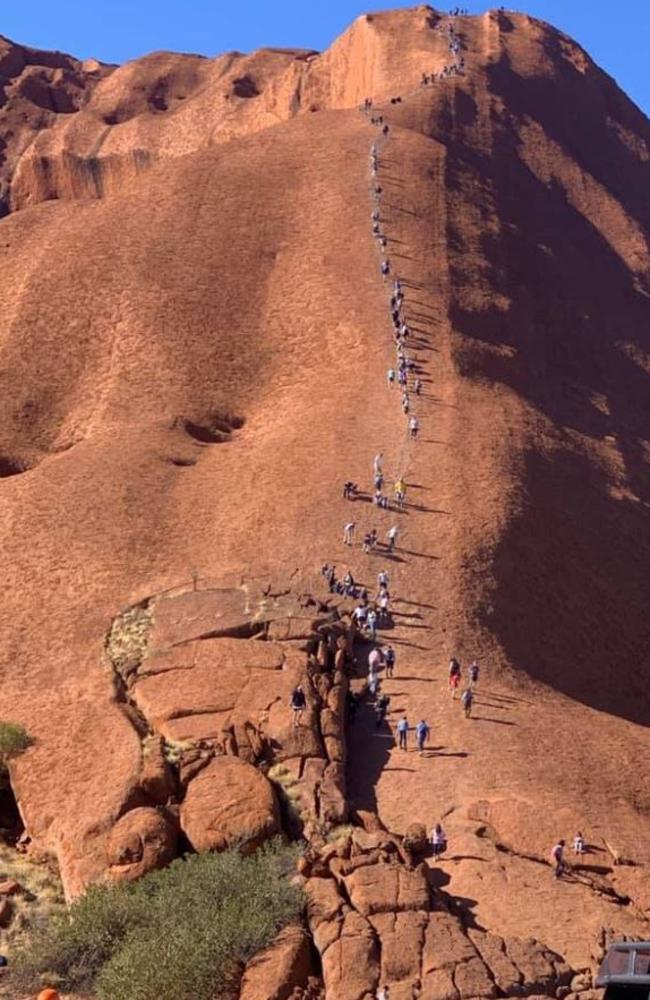
The Anangu traditional landowners say tourists are leaving rubbish bins overflowing, illegally dumping human waste from caravans along the roadside and have made Uluru-Kata Tjuta National Park the “busiest they’ve seen it”.
“There’s cars parked for one kilometre on either side of the road leading up to the carpark at the base,” an unnamed photographer who supplied the photo to the ABC said.
At least 35 people have died while attempting to climb Uluru, and many others have been injured.
From 2011 to 2015, the climb was closed 77 per cent of the time due to dangerous weather conditions or cultural reasons.


